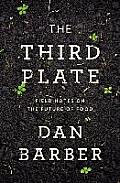Wes Jackson and the resilient midwest prairies
What is agricultural sustainability, you already know, right? Yet, what if we are missing something essential?
Sustainability, to Wes Jackson, one of the true visionary thinkers of our time, is one of those critically important “value terms”, like “Justice,” difficult to define, but vital in helping to identify what we value as a people in striving to reach our common ideals.
Jackson offers what he himself acknowledges to be a less than perfect definition, he boils it down to “living within our means”. Acknowledging that in nature, we can find more abundant examples of sustainable economies—such as, the midwest prairies. With human economies, we must travel back to an earlier period in human evolution. We must go back before agriculture began about 10,000 years ago, when humans existed largely as gathers and hunters. Jackson argues that agriculture is where the break with nature occurred, and progressively over time to the modern era, where increased “deficit spending” of our natural resources has enabled modern agriculture to achieve stunning successes. —But at a terrible cost.
Dan Barber’s realization of nature
Which brings us to Dan Barber’s thoroughly satisfying, at times surprisingly funny and deeply moving, new book, The Third Plate: Field Notes on the Future of Food. Based upon a 10-year personal journey—a quest— not to save the planet or redefine sustainability, per se, but as a chef, to find and source the tastiest culinary ingredients imaginable.
In many ways, Barber’s book is a story about finding a path for agriculture back toward nature. Wes Jackson’s work through the Land Institute focuses on creating perennial varieties of important grains to mimic the resilient native midwest prairies. Barber’s search is for varieties of crops and breeds of livestock and fish with exceptional qualities of flavor (and so too, containing higher nutritional value). Intertwined with flavor and higher nutrition, are local ecosystems which support and enhance the quality of the food that’s grown and raised. And, in turn, these natural ecosystems must also be protected by local culture or they will disappear.
In this interview with Dan Barber, we talk about The Third Plate, his passion as a chef for outstanding food, and the eventual realization that his search for the finest food ingredients requires a paradigm shift in reasoning, as simple, as it is profound. It’s almost ironic that in the seemingly singular pursuit of flavor, Barber ends up chewing upon the notions of culture, local ecology, and a care for the land (and sea) that he realizes are inextricably entwined with each prize morsel of food that he encounters.
By broadening the perspective of how we view, and thus how we come to define agricultural sustainability, Barber’s book deepens the connection between what it means to be an eater, and how we must shape our food system to reflect those higher values. In the end, whether the goal is to create superior taste, higher nutrient value food, or to protect and nurture local food ecosystems to more closely mimic the biodiversity and resiliency found in nature, Barber’s a prescient vision. To attain one of these goals in any kind of lasting fashion, will almost certainly mean the attainment of the others.
The Third Plate offers an exciting glimmer of a future— boy, if we can only get there, what a fine world it would be.
Most of the videos featured on Cooking Up a Story were produced, filmed, and edited by Rebecca Gerendasy. Fred Gerendasy contributed as a writer to many of the posts and occasionally as the interviewer. Visit Rebecca Gerendasy Clay – Art and Fred Gerendasy Photography to see their current work.

